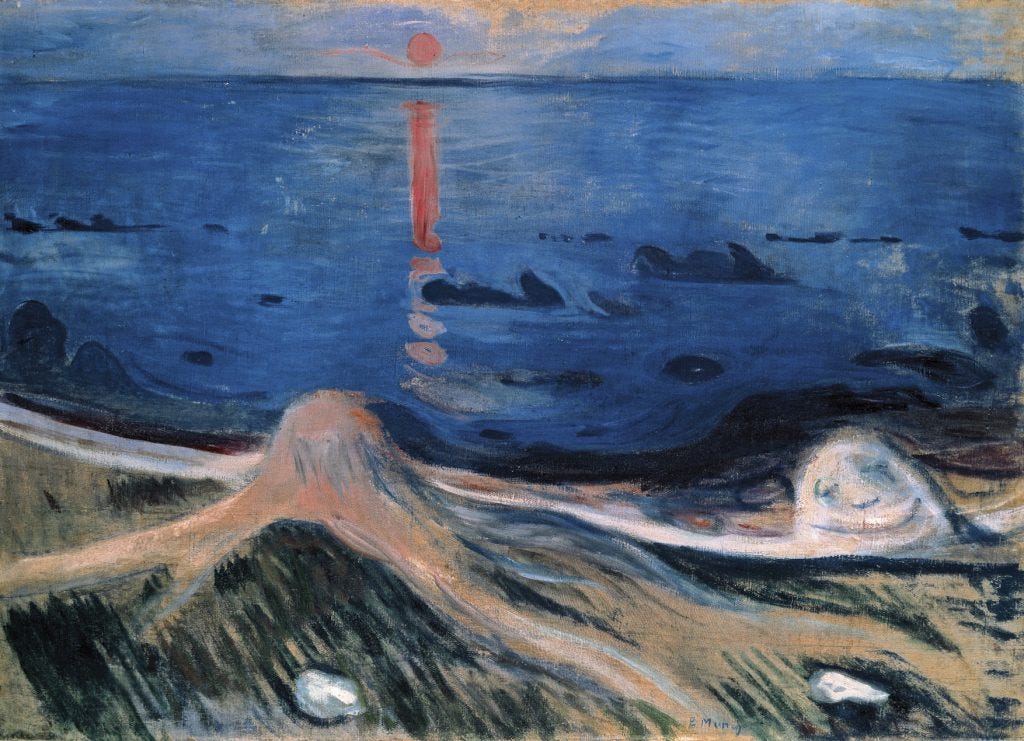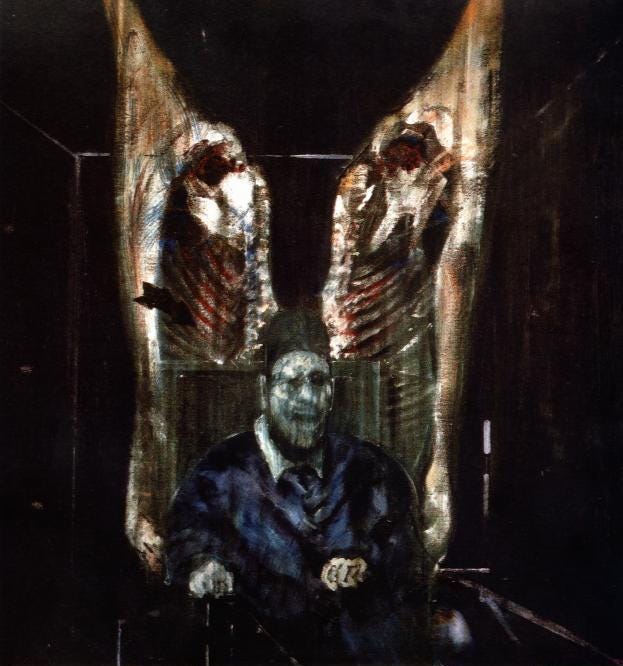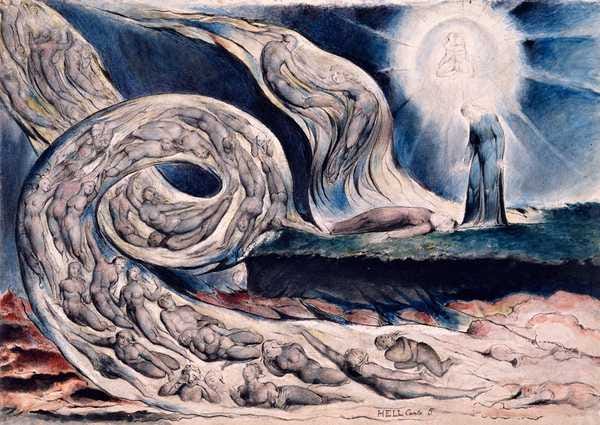Gravity's Rainbow - Part 2 - Chapter 8: Dissolving in Sand and Shore
Analysis of Gravity's Rainbow, Part 2 - Chapter 8: Pointsman and Co. at the Beach
The war had been settling for a while, allowing the last remnants of power to redistribute their way across the world before the higher ups shut the main attraction down. Now though, the war in Europe has ended for good. Pointsman sits by the sea, feeling the need to relax, worrying about another general crisis at hand. Slothrop seems to have gone missing; though the war is done, “Don't forget the real business of war is buying and selling,” (1.14, pg. 105) so with Slothrop missing, Pointsman’s true goal has been lost, his means of finding a method of pure control and conditioning, or how to truly understand the mechanism binding lust to death. For, the goal of the war was never to stop the Nazis or any of the Axis powers, it was to elevate Their level of control to ways unseen. And Slothrop was lost somewhere in Zürich where we last left him. He was, according to Pointsman, allowed to “escape from the Casino Hermann Goering, so that Secret Service could keep him under surveillance instead of PISCES” (270) — PISCES, again, being the wing of The White Visitation dedicated to psychological warfare. It is uncertain when he went missing; it’s possible he lost them on his travels to Geneva (meaning Squalidozzi was likely not a plant), or when he got off the train early on his way back, or even when he left town to who knows where. But the fact remains that he has dissapeared.
Pointsman blames himself. Even these intelligence agencies are subject to budget constraints, for They may be willing to pay quite a bit to control the world, but there’s no point in overfunding something if it’s getting Them nowhere. These budget issues came to a head when Pointsman paid a team of two, an Englishman and an American named Harvey Speed and Floyd Perdoo, to investigate the women marked on Slothrop’s map to see if there is any unseen connection between them and the bombs that were dropped at the same sites. This ended up being quite costly given how many women there were to investigate (along with the two men’s penchant for daytime lunches in cafes). Plus, besides all that, the two were never able to find any of the girls that Slothrop apparently slept with — so what gives? Were all of Slothrop’s sexual encounters just fantasies? Dreams? Analogies?
The possibilities here are numerous, and one clear answer, to Pointsman and the reader, does not exist. Let’s examine a few:
The most physical and surface reason could be that the women, after having slept with Slothrop, were killed in the subsequent bombings and thus are not traceable. Other instances, such as Mrs. Quoad not knowing Darlene, could be explained through her dementia.
To rehash a few points: Slothrop’s conditioning by Jamf was clearly a sexual stimulus with the presence of something that dealt with violence or weaponry. His reaction was thus also sexual. Given Slothrop himself is, at times, an allegory for America, this clearly shows that America (or really any of the modern world) has been conditioned to have a lust for war, death, or violence — usually a lust they themselves are confused about. So, Slothrop, whether he somehow knows the bombs are coming or if he is simply trying to hide the violence from his view, has created his own fantasies placing sex above death. Or in other words, instead of focusing on his own fascination and lustful feeling toward the Rocket, he pretends (or again, maybe he really is doing it) that this sexual feeling is tied to a woman. This fantasy could be of his own doing, or . . .
Pirate Prentice’s doing. Far earlier in the novel (1.2), Pirate Prentice’s ability for fantasy management was used to further the goals of the powers that be, though he also has the ability to manage the fantasies to his own desire. It is possible that this was an instance of fantasy management. Slothrop possibly was again lusting over the ideas of The War or The Rocket and Pirate helped by transforming that lust into false sexual relief to prevent Slothrop from going crazy over his inexplicable feelings.
But the reality is that we understand this dilemma as poorly as Pointsman does, who just tries to forget about wasting money on something that only caused him to be more confused with Slothrop’s state. Pointsman considers that given we only have the first names of the women, of course it’s hard to find them; he states that whether fantasy or reality, it really doesn’t matter either. But just as the reader does not believe this is the case — that we need an answer — Pointsman holds onto an equal frustration.
As he tries to ignore all of these frustrations, the situation surrounding him grows worse. Shell Mex House — the Shell HQ Slothrop envisioned raiding earlier (2.7) — has been wanting to rename PISCSES to SPOG. While renaming may not seem like a wholly big deal, Pointsman knows that this, in reality, would remove his precious Foxes from the fray — taking the psychological operations out of the picture for a bit while They try to round up loose ends in the weapons department. They need these loose ends tied up though, because Slothrop is on the loose, a man “who knows everything it’s possible to know — not only about the A4, but about what Great Britain knows about the A4,” and “Zürich teems with Soviet agents” (272-273). Despite the fact that the Soviet Union was ostensibly on the side of Great Britain and the US during the war, the West immediately turned against them for their communist sympathies and strong military capabilities. And what could be more detrimental to the safety of The West than for the Commies to get ahold of Slothrop’s vast swathe of knowledge? The Soviets have already taken Peenemünde1 and “the central rocket works at Nordausen,” (273) — also known as the Mittelwerk.2 On top of this, “At least three agencies, VIAM, TsAGI3, and NISO […] are even now in Soviet-occupied Germany,” (273) these three agencies being those that were tasked with gathering German V-2 rocket intelligence post-WWII. And on top of all of this already terrifying (for Pointsman and the Germans, at least) loss, they have even rounded up Nazi scientists like Werner von Braun.4 Finally, The White Visitation itself is disintegrating with characters such as Rollo Groast, Treacle, and Myron Grunton,5 actually leaving, Pudding now sick from his nightly E. coli filled escapades, and Roger Mexico growing distant (likely due to his failures with Jessica). So no wonder Pointsman is terrified, wondering, “What if they get a hold of Slothrop?” (273).
His solution to maintain sanity brings us back to the beginning of the chapter with him sitting by the sea — a vacation on a public beach that is now crowded with the population who has realized they’re free from the war. Alongside him sits Mexico, Jessica, Dennis Joint6, and Katje. As the beach-going crowd frolics, laughs, runs, feasts on sweets, and is elevated to “love without payment of any kind,” (274) the irony strikes deep that these civilians hold in their hearts that the war is over and that they are finally safe, while those who helped fuel it sit within eyesight, taking their own form of vacation from what the end of the war has lost them.
Pointsman’s paranoia comes to an edge. His plan with this vacation is to lull each member into a state of pure relaxation in order to elicit information that they may be hiding. Yet all they seem interested in at the moment are their own insecurities and pains (the war has ended, of course the last thing they want to focus on right now is more of the same old). This failure to draw out any information leads him down a new track of worry: Pirate Prentice, the one who brought Katje to The White Visitation, is now prodding him for information on her, and Pointsman cannot figure out why. To him, it seems as if Prentice has had a change of heart for the entire operation, even going as far to search for information down at “Twelfth House” (the new branch where PISCES will work out of in London, the old one being The White Visitation) when Pointsman won’t give him what he needs. Though we haven’t seen him recently, it should not come as a surprise that Pirate has always had some hesitation toward their agency, for there have been moments of near perfect clarity, such as when he walked down his spiral staircase having viewed the recent bomb strike (1.1), or where he realizes that Mexico “is being used for something not quite decent” (35) (1.5) by Them. Unsurprisingly, the group begins to notice Pointsman’s insanity one by one, some caring more than others, after he tells Mexico that he is hallucinating.
We transition to learn of Mitchell Prettyplace, his obsession with King Kong, and its relation to Gödel’s Theorem. Prettyplace, a film critic, wrote a thesis that incorporated what he thought was every conceivable aspect of the film, from “out-takes” to “every last bit of symbolism,” from “exhaustive biographies of everyone connected to the film” to “interviews with King Kong Kultists” (275). Even with this mass accumulation of information, no complex system, as Gödel’s Theorem states, can truly be fully known or fully complete. It does not matter if it be a thesis on King Kong, vector calculus as a whole, Slothrop’s knowledge of the V-2 (for it is currently leading him on a holy grail like quest for the S-Gerät which he knows little to nothing about), or even that of the Schwarzkommando: "when everything has been taken care of, when nothing can go wrong, or even surprise us . . . something will" (275).
And surprise us it does, for apparently, unknown to the creators of the Schwarzkommando in Operation Black Wing, a real group of Schwarzkommando, "real black rocket troops," (276) does exist. The original project was to create a scare tactic for other governments, yet now even the group who created this supposedly false narrative are themselves scared. What could the real Schwarzkommando be here for? Revenge? While many in PISCES are unaware of how this came about, apparently, a list of critical documents had gone missing which they believe may be hiding the fact that the Schwarzkommando’s existence had always been known. Upon the revelation which "reached them a week before V-E Day," (276) Psi Section was sent into an uproar. However, as they devolve to the point of chasing each other with axes, they fail to question why this revelation was hidden and why it was being revealed now. Operation Black Wing was set in motion to both scare and distract the enemy. So perhaps whoever revealed this new fact to PISCES was attempting to distract the original creators since the creators, ready to move back into the state of peace, know too much. And if they know too much, as they begin to see the world they helped create (or, in reality, destroy), they would need someone to blame for the lies that were fed to them. However, if they were fed the false reality of the situation, that it was perhaps the black rocketeers who were the enemy, then there would be someone new to blame, for what They want is for "feelings about blackness [to be] tied to feelings about shit, and feelings about shit to feelings about putrefaction and death" (276). Feelings of the other to evoke horror so that the true horror can fall back into the shadows.
Now, since the moment the group has noticed Pointsman’s exacerbated insanity, these ideas — from Mitchell Prettyplace’s thesis to the Schwarzkommando — have been a part of Pointsman’s hallucination (which isn’t to say they aren’t real, Pointman is just so caught up in them that he has begun hallucinating his greatest fears). The hallucinations begin to devolve further from mere analyses of the problems at hand to visions of ghosts come back in the night to suck at their mothers breast, fathers once dead come to cuddle alongside them, for if the supposedly never existent Schwarzkommando could "have been summoned, in the way demons may be gathered" (275) out of a fabricated story, then why couldn’t our dead kin be summoned back as demons as well?
An unseen voice comes to Pointsman. It tells him that the way forward is through getting Roger Mexico lost in his work, and the only thing distracting him from this work is Jessica. The voice knows that a person in the midst of such turmoil is exploitable — that if you remove the one thing they’re striving for and love, and they no longer have something beyond themselves to live for, they will seek distraction in work, whatever that work may be. Everyone seems to be attempting to suppress the one time oppressor — Them attempting to subdue PISCES with the Schwarzkommando revelation, Pointsman trying to subdue his own underlings. But in the end, for now, each member of the beach party stares at Pointsman who has begun speaking to someone who is not there. A voice who calls to Pointsman’s mind one thing that may disprove Gödel’s Theorem, something that is complete: “‘Yang and Yin,’ whispers the Voice, ‘Yang and Yin. . . .’” (278).
Up Next: Part 3 — Title and Epigraph
The site of initial development of various German rockets including the V-2 (the Peenemünde will become important later in the novel, so remember the name).
An underground factory in Nordhausen that utilized slave labor from the Dora concentration camp to make German rockets including the V-2 (also will become important later in the novel).
Another important name in this chapter that will come up later. Keep in mind that TsAGI is a Soviet agency which is now occupying Germany looking for rocket intelligence.
The same Werner von Braun whose quote opened up Part 1 of the novel.
The member responsible for helping Operation Blackwing (AKA, the fabricated videos of the “Schwarzkommando” — a group of black rocket scientists creating ballistic weaponry — that were used as propaganda to distract from who was really conducting war and to place the blame on another source).
The man who wants to change PISCES to “an adjunct of the British rocket-scavenging effort” (272).






